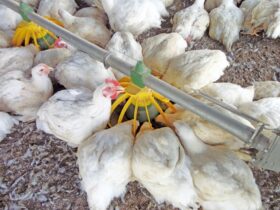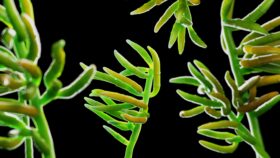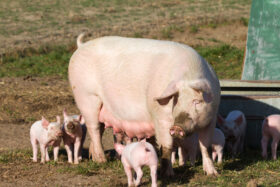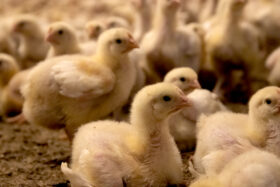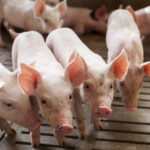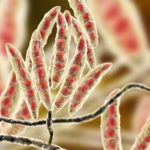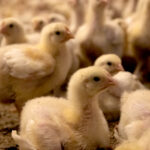by Marisabel Caballero, Global Technical Manager, and Madalina Diaconu, Global Manager Gut Health, EW Nutrition
In practical poultry production, multiple stress factors occur simultaneously: nutrition, management, environment, etc.. The effects of these factors are additive, leading to chronic stress, a condition in which animals cannot regain homeostasis and continuously deviate the use of resources to inflammation and restoring the gut barrier-function (Das et al., 2011). As a result, the gut microbiome is altered and oxidative stress ensues (Mishra et al., 2019). In this situation, health and productivity are compromised.
The feed supplied to production animals is designed to help them express their genetic potential. However, some feed components are also continuous inflammatory triggers. Anti-nutritional factors, oxidized lipids, and mycotoxins induce a low-grade inflammatory response (Cardoso Del Pont et al., 2020). Other factors that trigger gut health issues include the environment, management, and pathogens.
Feed interventions have shown to increase productivity and improve gut-related biomarkers, demonstrating a mitigation effect over the challenge factors (Deminicis et al., 2020; Latek et al., 2022).
Meta-analysis of broiler studies shows consistent results
As broilers are continuously challenged during the production period, the effects of an in-feed phytogenic (Ventar D – EW Nutrition GmbH) were extensively researched in broiler meat production. 21 trials in different locations (7 in Europe, 6 in the USA, 4 in Japan, 3 in Middle East, and 2 in India), with different production levels (grouped by EPEF) and challenges were analyzed to establish Ventar D’s benefits for the broiler production industry in terms of performance and sustainability. In all trials, the treatment group consisted of a supplementation of the basal feed with Ventar D at a dose 100 g/ton. The control groups were not supplemented with any gut health improvement feed additive.
Of these 21 trials, 14 had corn/soybean meal-based diets and 7 had high fiber diets (based on wheat and rye, which constituted a challenge as no NSP-enzymes were included). Reused litter (by 12 to 14 flocks, previous to the trial) also was used as a challenge. 18 trials were performed in research facilities and 3 in commercial farms.
Consistency in the results from Ventar D could be demonstrated as 19 out of 21 trials showed an improvement in FCR, lowering 3.4 points on average; 18 /21 trials showed higher body weight, with an average of 64 grams more; and 17 trials showed lower mortality than the control group, averaging 1.19 percentual points of reduction. The phenolic compounds included in Ventar D, such as thymol, possess antioxidant, anti-inflammatory, and antibacterial activities, which account for improving gut health and thus increasing performance in production animals.
The European Poultry Efficiency Factor (EPEF) was used to establish the performance level of each flock. This index is based on the average daily weight gain, mortality, and feed conversion, and takes in consideration the age of the flock at collection, allowing to make comparisons on performance within and between farms.
Of the 21 trials, 10 control groups had an EPEF lower than 375, and were considered of low performance level, in 8 the EPEF was between 375 and 425 and considered of medium performance, and for 3 the performance was considered high having an EPEF of 425 or more.
Ventar D increased performance at all levels (Figure 1). However, the effects were challenge-dependent:
Low performing flocks averaged an 8% increase in EPEF, and high performing flocks increased 4%, indicating that Ventar D can help broilers to overcome challenges commonly found in poultry production, and boost performance even with excellent farm and management conditions. These results concur with a meta-analysis by Valle Polycarpo and collaborators (2022), finding that a microbial challenge can influence the performance of phytogenic feed additives.

Overall, this analysis demonstrates that effective nutritional interventions can give consistent results and constitute effective tools to help production animals overcome stress and enhance productivity.
